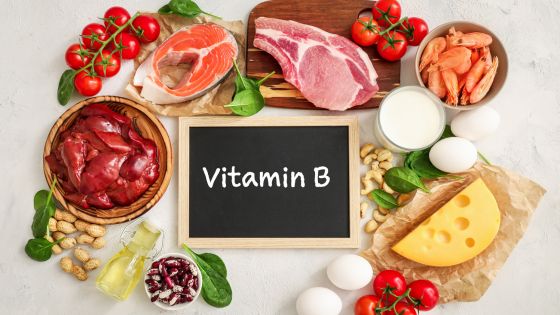
Dave's Hot Chicken has quickly become a hit among culinary lovers, especially non-veg enthusiasts. Their irresistibly flavorful and satisfying chicken offerings have quickly made Dave's Hot Chicken an unparalleled dining experience for many non-vegetarians. While the debate between vegetarian and non-vegetarian diets rages on, people must recognize the contribution non-veg foods like chicken make to maintaining a balanced and nourishing diet - including providing high-quality proteins, B12 vitamins, iron supplementation and variety that makes meeting nutritional needs while enjoying delicious meals.
Not all non-veg options are created equal; quality matters. When shopping for non-veg products such as poultry or meats, opting for those certified as Zabiha Halal ensures compliance with Islamic dietary guidelines and humane slaughtering methods, adding another level of conscientiousness while underscoring ethical considerations in food consumption. In this way, those incorporating non-veg into their diets can do so with care while respecting both nutritional needs and ethical considerations.
1. Understanding Non-Veg Nutrition
Understanding non-veg foods' nutritional advantages is critical to appreciating their role in a balanced diet. Animal products like meat, fish, and eggs contain high-quality proteins essential for muscle repair and growth; additionally, they are rich in essential micronutrients such as B12, iron, and zinc, which play important roles in energy metabolism and immune health.
Non-veg foods contain complete proteins with all the essential amino acids our bodies need, making them an invaluable component of a nutritious diet, particularly for individuals with higher protein needs or those seeking to build lean muscle mass by including non-veg options as part of a comprehensive approach to nutrition that promotes overall health and wellbeing.
2. Protocell Power in Animal Products
Animal products are unrivaled when it comes to providing essential protein sources for our bodies, with animal-sourced amino acids more efficiently utilized by the human body compared with plant sources - making animal-based proteins essential components of a balanced and nutritious diet. From lean cuts of meat and eggs to dairy products and eggs - their potency cannot be denied!
Animal proteins provide complete sources of all essential amino acids for muscle repair, hormone production, and overall bodily function, making them an excellent choice for athletes, enthusiasts, and individuals seeking optimal health and well-being. While plant-based diets certainly have their place, animal products offer unique nutrition profiles regarding protein content and bioavailability that cannot be beaten.
3. Essential Fats and Micronutrients
Non-vegetarian foods provide abundant essential fats and micronutrients for optimal brain and overall body health, including omega-3 fatty acids that play an integral part in protecting brain health while decreasing the risk of chronic disease. Salmon and sardines are wealthy sources of these omega-3s and should be part of any balanced diet. Furthermore, eggs and meat provide essential fat-soluble vitamins like A and D, which are essential for immune and vision health.
Micronutrients such as iron and zinc are abundant in non-vegetarian foods. Iron from red meat is more readily absorbed by the body than plant sources, making it essential in helping prevent anemia, particularly among women of childbearing age. Zinc found in poultry and seafood provides vital immune system function support and wound healing support - including various non-veg options that help ensure you get enough of these essential micronutrients for overall well-being.
4. Cultural and Culinary Diversity
Culture and culinary diversity are integral in shaping our taste preferences and offering us a range of dining experiences. When exploring different cuisines from around the globe, not only do we satisfy our hunger, but we are exposed to new ingredients, cooking techniques, traditions, flavors, and techniques that expand our minds - from Indian curries with aromatic spices to the bold flavors found in Mexican street food - each culture brings their distinctive contribution to the culinary landscape.
Cultural and culinary diversity promotes inclusivity and understanding by creating shared meal experiences, breaking down barriers between individuals, and fostering an appreciation of different approaches to food preparation, communal dining rituals, historical influences influencing traditional dishes, etc. Engaging with this diversity can expand our horizons regarding different ingredients or methods of preparation that could enrich our approach to nourishment.
5. Ethical Considerations and Sustainable Sourcing
Ethical Considerations and Sustainable Sourcing are integral to responsibly incorporating non-veg items into our diets. When selecting non-veg options, we must consider animal welfare and environmental impacts. Opting for sustainable sourcing means supporting practices that take animal welfare, reduced environmental impact, and ethical treatment of workers in food industries into account - this ensures we can enjoy non-veg options with an environmental conscience.
Sustainable sourcing ensures higher-quality non-veg products since they tend to be produced using healthier methods and provide more excellent nutritional benefits. By supporting ethical considerations in the production of non-veg products, we contribute to creating a more responsible food system overall - this benefits consumers and sets an example for future generations about making mindful decisions that prioritize ethics and sustainability across life's domains.
6. Integrating Non-Veg Foods Into a Balanced Diet Plan
Integrating non-veg foods into a balanced diet plan is an effective way to acquire essential nutrients not found readily available through plant-based sources alone. While vegetables and fruit offer many vitamins and minerals, non-veg options like lean meats, fish, and poultry offer high-quality proteins, iron, zinc, and B12 vitamins. These vital components play a pivotal role in muscle repair and regeneration as well as immune system health, energy metabolism, and overall well-being.
Non-veg foods can add variety and sustainability to your diet, making mealtimes more enjoyable while simultaneously meeting all your nutritional needs. By including non-veg options such as fish for omega-3 fatty acids or lean beef for iron and protein, non-veg options create a more comprehensive array of flavors and textures in meals while supporting optimal health outcomes. Embracing vegetarian and non-vegetarian options as part of an inclusive approach ensures that a balanced diet plan meets all these criteria.
7. Conclusion: Adopting Diversity for Maximized Nutrition
After investigating the non-veg's role in providing a well-rounded diet, we must stress the importance of diversity for optimal nutrition. Achieving a well-balanced diet requires including plant- and animal-derived options in our meals to achieve a balance that provides us with essential nutrients, vitamins, and minerals necessary for good health and vitality.
Furthermore, diverse dietary choices promote cultural awareness and understanding. By adopting various food traditions and culinary practices from across cultures around the globe, we increase our culinary palettes and foster respect for all of the rich traditions that make up our global society. Furthermore, exposure to multiple diet approaches provides us with opportunities for education regarding nutrition that could improve our eating habits in general. Embracing diversity feeds our bodies and enriches lives with vibrant flavors and unique nutritional advantages provided by non-veg choices!
